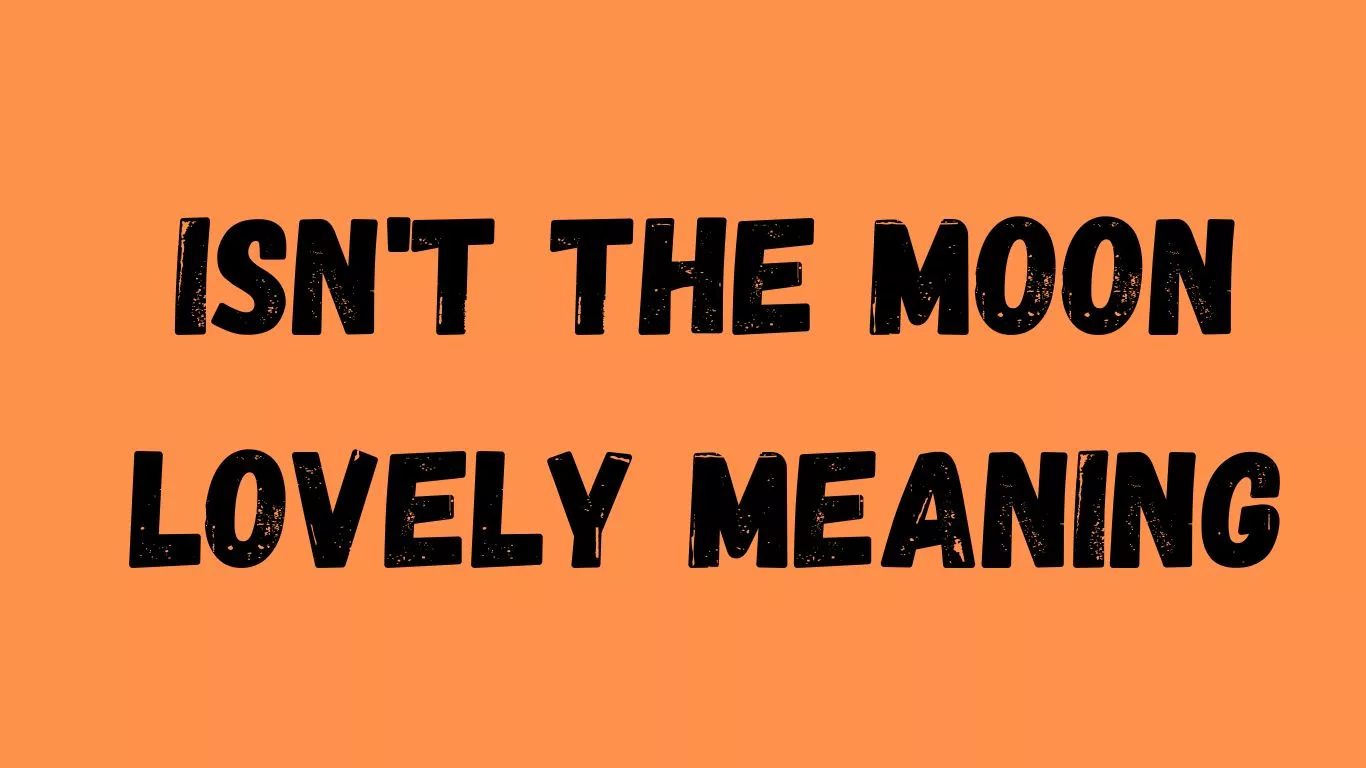The phrase “Isn’t the moon lovely meaning” carries an air of nostalgia and wonder, invoking a sense of admiration for the moon’s ethereal beauty. In this article, we delve into the depths of this expression, exploring its origins, various interpretations, and the emotions it evokes. From its appearance in literature to its impact on popular culture, we’ll journey through the enchanting realms of symbolism and significance, uncovering the layers of meaning hidden within this seemingly simple question.
Isn’t the Moon Lovely Meaning: A Glimpse into the Enchantment
The expression “Isn’t the moon lovely?” encapsulates a moment of awe and appreciation for the moon’s celestial splendor. It’s a rhetorical question that doesn’t necessarily require an answer but instead invites contemplation on the moon’s beauty. This phrase often appears in literature, poetry, and romantic settings, where its underlying sentiment can vary based on context.
Exploring the Symbolism
Moon as a Symbol of Mystery
The moon has captivated human imagination for centuries, symbolizing mystery and the unknown. Its ever-changing phases mirror the unpredictability of life, offering a metaphor for the cyclical nature of existence. In literature and art, the moon often represents the hidden depths of the human psyche and the enigmatic aspects of nature.
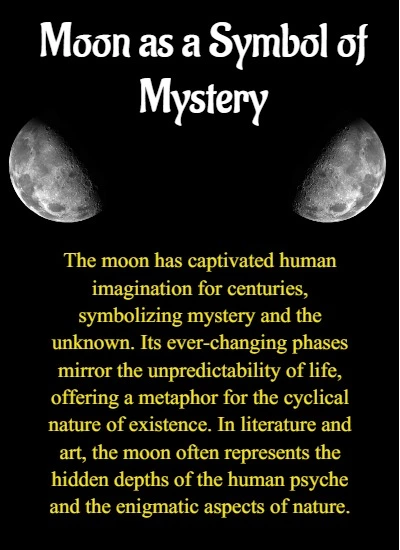
Romantic Connotations
In romantic contexts, the phrase “Isn’t the moon lovely?” can be an expression of affection and admiration. It’s a way to connect with someone on a deeper level, sharing a moment of beauty and wonder. By appreciating the moon together, individuals create a sense of intimacy and unity, fostering a romantic atmosphere
Reflection and Contemplation
The moon’s reflective nature has led to its association with introspection and contemplation. Just as the moon reflects the sun’s light, individuals may see it as a mirror for their own thoughts and emotions. The phrase can prompt individuals to ponder life’s mysteries and their place in the universe.
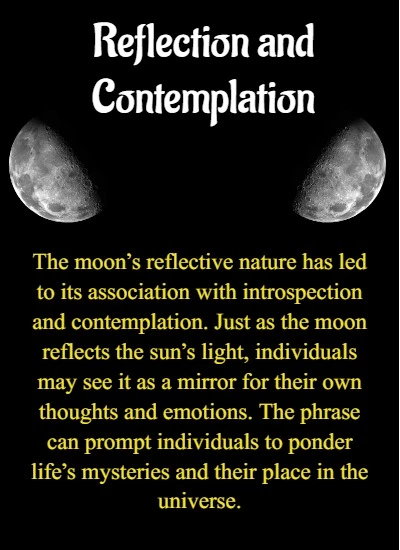
Literary References
The phrase “Isn’t the moon lovely?” has found its way into literature, becoming a timeless expression of beauty and longing. Authors and poets have employed it to evoke powerful emotions and create vivid imagery.
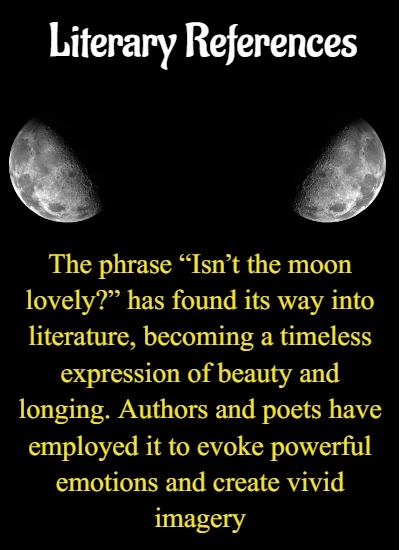
Shakespearean Allusions
In Shakespeare’s “A Midsummer Night’s Dream,” the moon takes on a significant role. The line “Merry and tragical! tedious and brief! That is hot ice and wondrous strange snow” from Act 5, Scene 1, captures the contradictory and enchanting nature of the moon. The juxtaposition of opposites reflects the complexities of human emotions and experiences.
Isn’t the Moon Lovely Meaning
Modern Usage
Contemporary authors continue to draw inspiration from the moon’s beauty. In novels, short stories, and even social media posts, the phrase “Isn’t the moon lovely?” adds a touch of magic to descriptions of nightscapes, enhancing the sensory experience for readers.
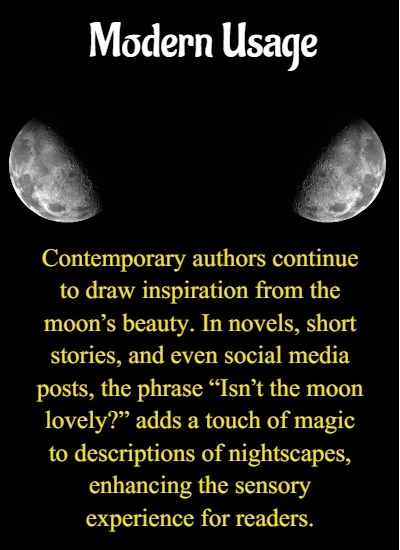
Other ways to say buck the trend
Cultural Significance
Moon in Mythology
Across cultures, the moon holds symbolic significance. In Greek mythology, the moon is associated with Artemis, the goddess of the hunt and the wilderness. In contrast, Hindu mythology features the story of Chandra, the moon god. These myths showcase the diverse ways in which the moon has shaped cultural narratives.
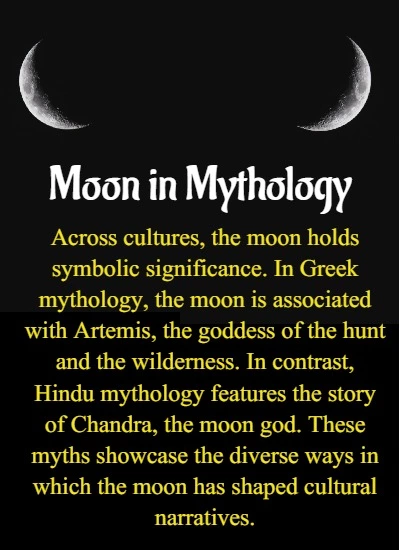
Lunar Festivals
Many cultures celebrate lunar festivals, honoring the moon’s role in the lunar calendar. The Mid-Autumn Festival in East Asia and the Islamic holiday of Eid al-Fitr both involve moon-related rituals and celebrations. These festivities highlight the moon’s ability to bring people together in joyous occasions.
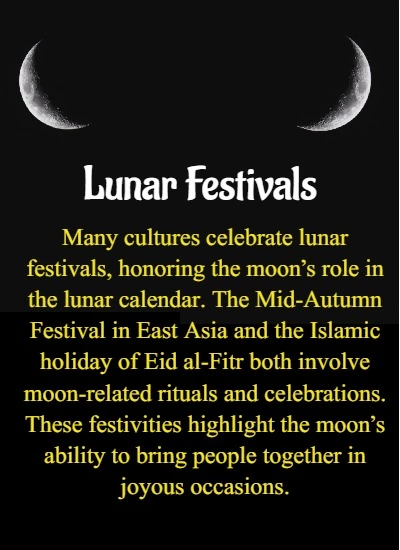
FAQs
What is the origin of the phrase “Isn’t the moon lovely?”
The exact origin of the phrase is unclear, but it has been used in literature and conversations for centuries to express admiration for the moon’s beauty.
Isn’t the Moon Lovely Meaning
Does the phrase have a specific cultural meaning?
While the phrase itself doesn’t have a singular cultural meaning, its sentiment resonates across cultures as a reflection of the moon’s universal appeal
How does the moon inspire artists?
The moon’s mystique and beauty have inspired artists throughout history to create paintings, poems, and music that capture its essence and symbolism
Can the phrase be used metaphorically?
Yes, the phrase can be used metaphorically to express admiration for anything beautiful or awe-inspiring, not just the moon.
What are some famous moon-related quotes?
Apart from “Isn’t the moon lovely?” quotes like “Shoot for the moon; even if you miss, you’ll land among the stars” also celebrate the moon’s allure
How does the moon impact human emotions?
The moon’s influence on tides and its ethereal glow have led to its association with emotions, including nostalgia, romance, and reflection.
Conclusion:
“Isn’t the moon lovely?” is more than just a question; it’s a testament to the timeless beauty and symbolism of the moon. From its role in literature and culture to its impact on human emotions, this expression reminds us of the wonder and mystery that the moon continues to evoke. As we gaze up at the night sky, may we always find inspiration in the moon’s radiant glow and the profound questions it stirs within us.
Also Read:

